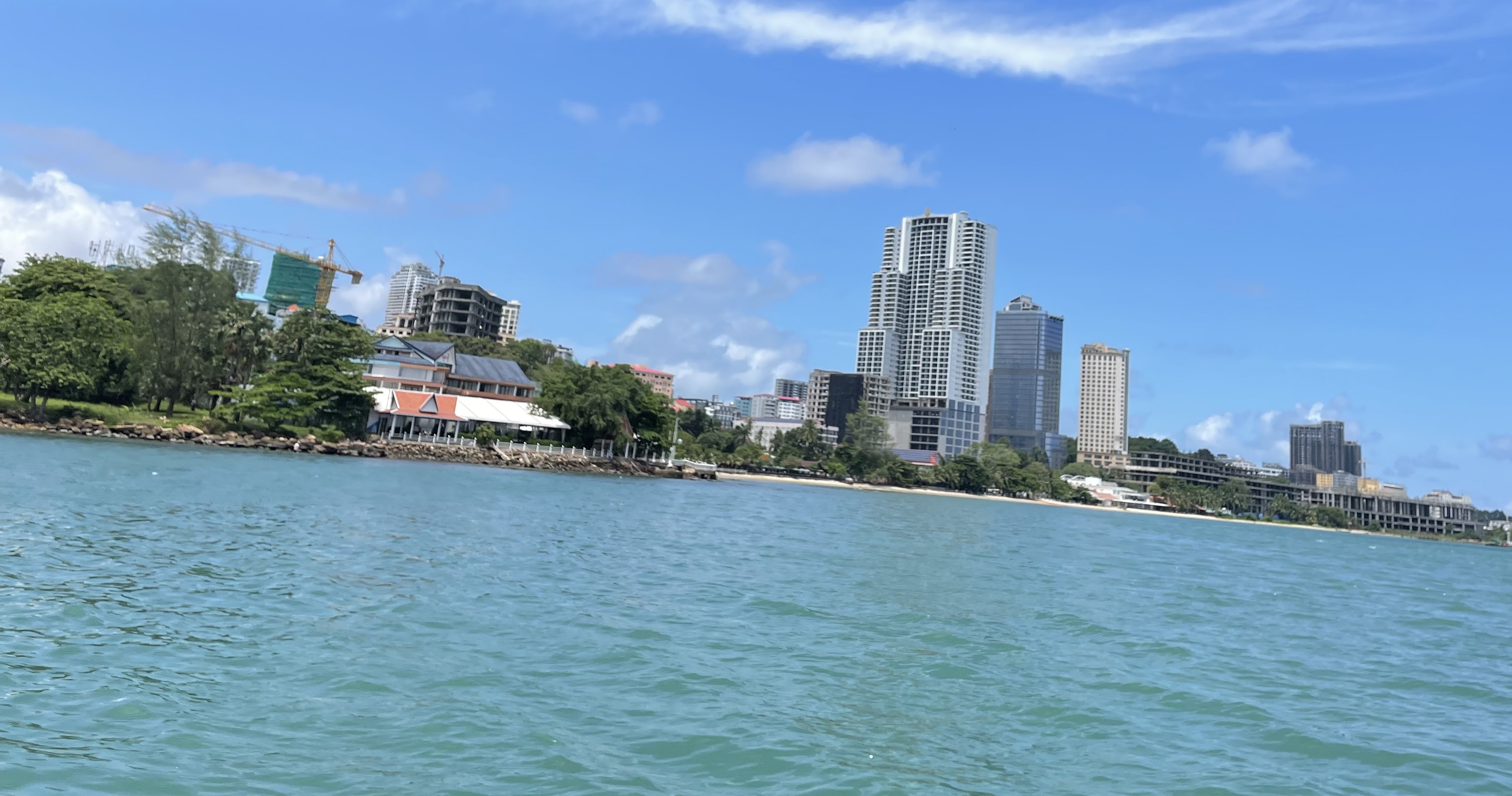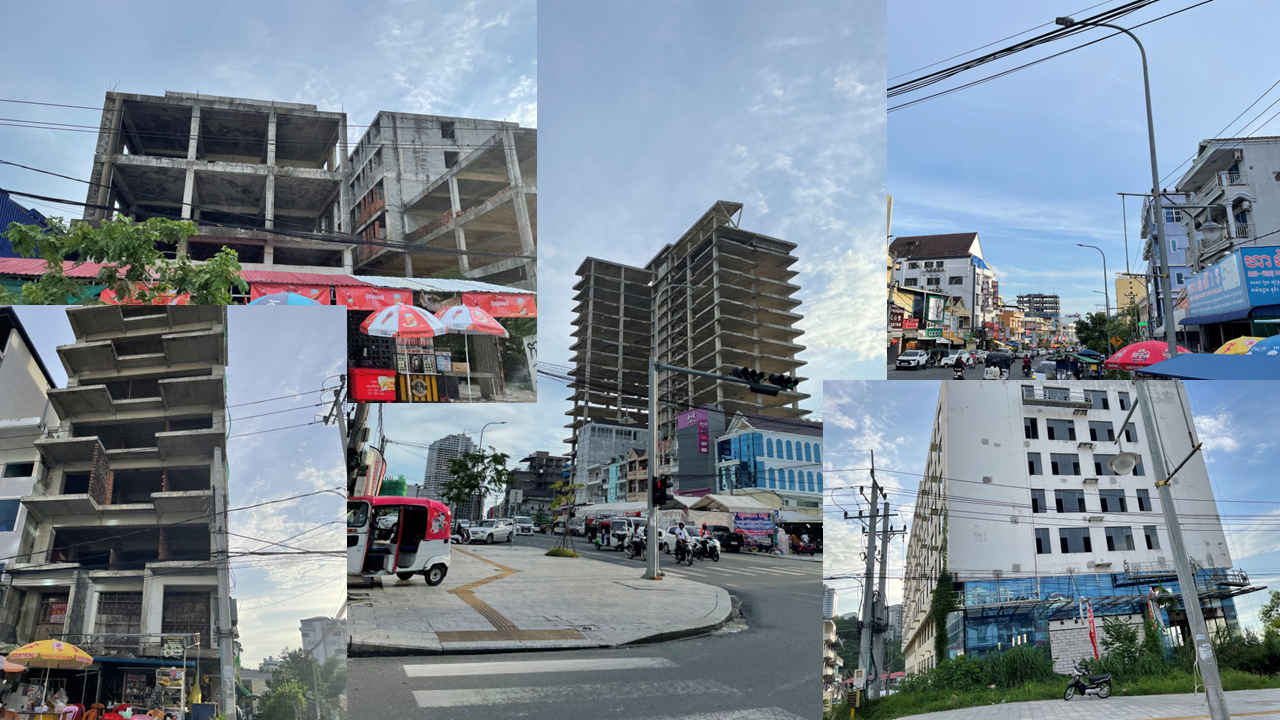Cambodia’s Southern Coastline
ODC Presentations and Papers
I gave a presentation on Cambodian data policies at 7th Cambodia ICT and Digital Forum last week. The beginning portion of the talk was spent discussing the state of Foreign Direct Investment in Cambodia before transitioning to the impact that some of the draft laws may have on investment in the country. Earlier in the conference, Mr. Nget Moses gave a fantastic presentation on Cambodia’s proposed cybercrime law. I am also putting the final touches on my research report. The report will remain internal to ODC due to sensitivities. Some of my other assignments here at ODC over the last few weeks have included attending a few technical conferences held in Cambodia and proofreading grant proposals. I am scheduled to attend an International Telecommunication Union (ITU) event on digital transformation early next week.
Riding in a van with a monk down to Sihanoukville
I took a short trip down to the southern portion of Cambodia over the weekend. The van cruised along Cambodia’s sole expressway, the Phnom Penh-Sihanoukville Expressway. The road was financed through a syndicated loan led by the China Development Bank. This highway, a linchpin of the PRC’s Belt and Road Initiative in Cambodia, has dramatically reduced travel time between the capital and the coastal city. It transformed what was formally a five-hour ordeal into a two-hour journey. The van's interior exuded the serene calm of a sleepy Saturday morning, with only a family and a young Buddhist monk seated behind me. The monk and the family's young daughter struck up a friendly conversation as the van traversed the streets of Phnom Penh. It was amusing to hear the monk occasionally scrolling through social media on his phone. The rapid transformation was immediately apparent as the van pulled off the highway and navigated into Sihanoukville, a city perched on the Gulf of Thailand. Once a small beach town, Sihanoukville has seen rapid real estate development over the last decade. One major ongoing project is the Sihanoukville Autonomous Port. The port is undergoing a significant upgrade to transform it into a deep-sea port by 2029.

I would be remiss not to mention the rapid expansion and subsequent slowdown in construction in Sihanoukville. The area experienced a dramatic surge in investment from 2013 until 2019. However, construction began to slow towards the end of 2019, leaving the city with many unfinished projects. According to a report by Nikkei in March, Sihanoukville now hosts over 500 "ghost buildings." The concrete frames stand tall, but the exterior walls and interior finishings remain incomplete. This creates a landscape of empty concrete shells that dot the city.

Gambling plays a prominent part of the Sihanoukville economy. According to Chapter 1, Article 1 of the 1996 Royal Kram on the Suppression of Gambling, Cambodians are prohibited from participating in gambling activities. Foreigners are permitted to gamble in the country, and Sihanoukville became a resort town and gambling hub. The city saw a meteoric rise in investment, primarily from Chinese investors, who owned 90% of the businesses in Sihanoukville as recently as 2019, according to the Khmer Times. However, the Cambodian government has been striving to curb the more unsavory aspects of the gambling industry. In a significant move, online gambling was banned in 2019. Additionally, the Phnom Penh Post reported in January of this year that the Ministry of Interior is working to amend the Royal Kram on Suppression of Gambling to align it with the Law on Commercial Gambling Management.
Another concerning trend has been the cyber scam centers that operate in Cambodia. The United States Institute of Peace released a paper in May 2024 that highlighted the proliferation of cyber scams operating out of Sihanoukville. Over the past few years, the Cambodian government has intensified its efforts to dismantle these operations. In August 2022, a major crackdown led to the rescue of over 2,000 individuals in servitude and the dismantling of five companies, as reported by The New York Times. Further coordinated raids in October 2022 resulted in the seizure of thousands of electronic devices and numerous arrests, according to ProPublica. Most recently, in March 2024, a raid led to the arrest of over 450 people involved in illegal online gambling and scam operations, as highlighted by the South China Morning Post.
Individuals are often lured by enticing job offers only to find themselves in forced to work for the cyber scam centers. The BBC detailed this crisis in an April 2024 article that highlighted foreigners being forced to work on these facilities. The New York Times further reported that these victims are coerced into working in online scam centers where they are forced to engage in activities such as love scams and crypto fraud. Despite ongoing efforts to address the issue, these operations frequently relocate and resume activities, as noted by VOA News in their March 2024 article "Scam Victims Say Human Trafficking Still a Problem in Cambodia[.]"